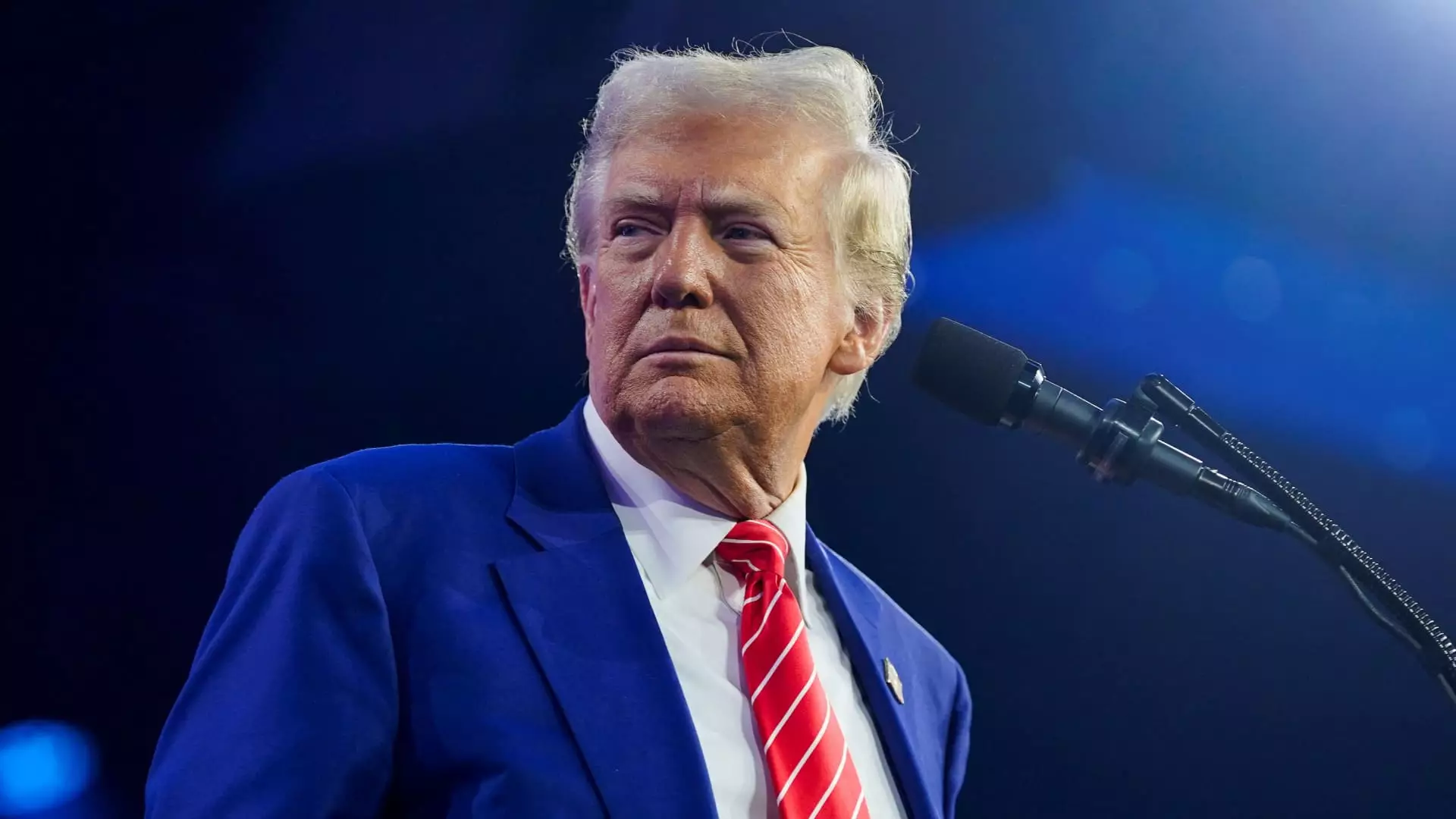The recent social media posts by President-elect Donald Trump on Christmas Day reveal a profound ambition to reshape North America’s geopolitical landscape. His comments, made via his Truth Social platform, echo nationalist sentiments that could have wide-reaching implications for international relations and domestic policies. This article delves deeply into Trump’s statements regarding Canada, Greenland, and the Panama Canal, exploring the underlying themes and potential consequences of his assertive rhetoric.
Trump’s remarks regarding the Panama Canal paint a picture of frustration with historical agreements. He expressed a longing for a form of control, highlighting the financial contributions the United States made during the canal’s construction in the early 20th century. His claims that American lives were lost during its creation brings an emotional appeal, albeit one that simplifies the complex history of U.S.-Panama relations. The Canal was a monumental engineering feat that served as a central artery for global maritime trade, and Trump’s calls for a return to dominance overlook both the legal ramifications and the progress Panama has made since regaining full control in 1999.
Furthermore, Trump’s description of “lovingly, but illegally” operating soldiers operates on a thin line of absurdity, undermining diplomatic protocols and the existing independence of sovereign nations. By insinuating that the U.S. could reclaim control of the canal, Trump rattles the delicate balance that has been established and potentially provokes unrest in U.S.-Panama relations.
Trump’s mocking of Canadian Prime Minister Justin Trudeau and his proposal for Canada to become the 51st state reflect an extreme nationalist view that disregards the sovereignty of neighboring countries. Suggesting that Canadian taxes would be slashed by over 60% and that businesses would flourish under U.S. governance exposes a lack of understanding of both nations’ economic frameworks. This idea reduces Canada’s unique identity and autonomy to mere economic incentives, which underestimates the complexities involved in national governance.
Moreover, the characterization of Canada as being in need of military protection further positions the U.S. as a domineering ally rather than a cooperative neighbor. Such rhetoric threatens to strain bilateral relations and undermines the existing framework of mutual respect and cooperation. Rather than fostering alliances based on equality, Trump’s approach leans towards coercive strategies that could alienate America’s northern neighbor.
Trump’s recent references to Greenland signal a persisted fascination with the territory, stemming from his controversial proposal to purchase it during his first term. His framing of Greenland as essential for “national security purposes” not only revives an outdated colonial mindset but also overlooks the wishes of the Greenlandic people. Greenland’s identity, culture, and solitude must be respected rather than seen as properties to be leveraged for American strengths.
The nomination of Ken Howery as ambassador to Denmark, coupled with the renewed interest in Greenland, suggests an inclination towards aggressive foreign policy that prioritizes U.S. strategic interests over diplomatic negotiations. By implying a right to exert control or influence over Greenland, Trump continues a legacy of American expansionism.
Amidst the jovial holiday wishes, Trump’s characterization of President Joe Biden as inept serves a dual purpose: reinforcing the message of his own supremacy while positioning himself as a viable alternative for American leadership. The derogatory reference to “radical left lunatics” is emblematic of his populist rhetoric, which seeks to polarize the political landscape further. In doing so, Trump overlooks both the necessity for cooperative governance and the value of bipartisan dialogue.
By framing political opponents as ‘enemies,’ Trump paves the way for an administration that may prioritize confrontation over collaboration. This reflects an underpinning philosophy that champions domination rather than dialogue when it comes to international relations and domestic politics.
In sum, Trump’s Christmas Day posts encapsulate an aggressive agenda towards Canada, Panama, and Greenland that reflects a disregard for national sovereignty and historical complexity. This rhetoric not only threatens diplomatic relations but also signals a troubling shift towards isolationist nationalism.
As he prepares to take office, it is imperative that American leadership considers the implications of such ambitions on both domestic stability and international cooperation. A constructive and nuanced approach is essential in navigating the multifaceted relationships inherent in North America’s political landscape, rather than resorting to outdated notions of control and dominance.

Leave a Reply